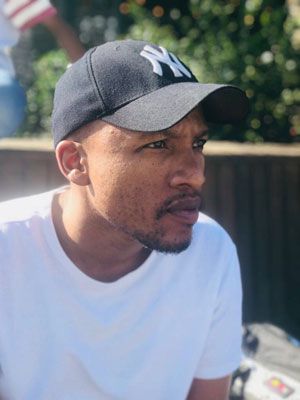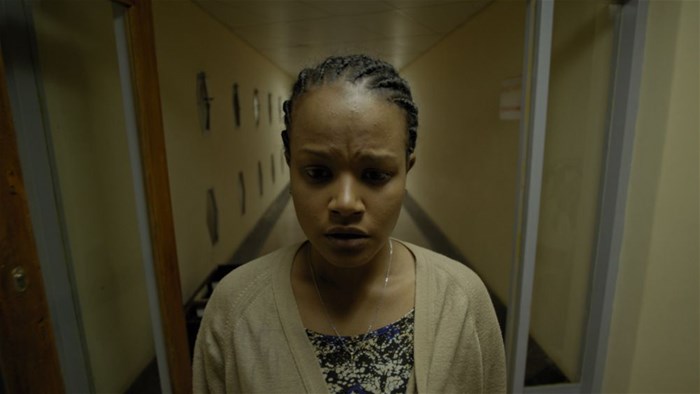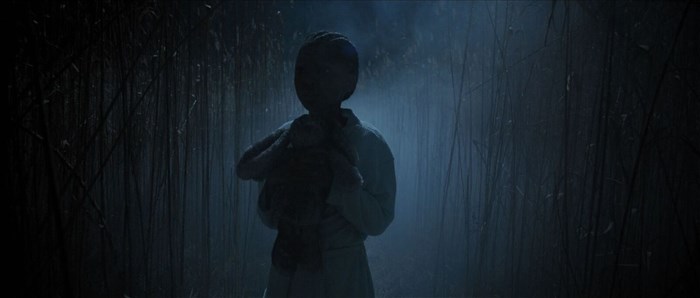In The Tokoloshe, a young woman, crippled by suppressed emotions, must find the courage to face an insatiable demon wrought in her own childhood when she tries to save the life of a girl child abandoned in a rundown Johannesburg hospital.
Pikwane finished his secondary schooling at the National School of the Arts and studied directing at the New York Film Academy. He has also worked with some of South Africa’s most established directors, starting his directing career in 2004 with Vuka and Pendoring awards for writing and directing. He has worked with brands such as MTN Telecommunications, PlayStation, and MetroFM. He is enthusiastic, versatile, and a self-confessed cinephile.
I always liked horror films because the genre can act as an allegory. Whether it’s Jaws commenting on Watergate or Get Out dealing with racism. In this case, our film deals with patriarchy.

The Tokoloshe is a bogeyman and most countries have them but our bogeyman represents the bogeyman we all grew up with. For Richard Kunzman and I, it was about giving the Tokoloshe relevance. Understanding that the myth means so much to so many people but ultimately we had to give it our own meaning.
Richard and I have known each other for over a decade so we know each other’s strengths quite well. I’m a cinephile and he’s a novelist so we met somewhere in between.
Richard Kunzmann is an internationally published South African author, whose first novel, Bloody Harvests, was short-listed for the lucrative Crime Writers’ Association John Creasy Award for Best New Novel in 2005.
Rampant crime and an under-resourced police force provide the backdrop for the critically praised Harry Mason and Jacob Tshabalala series, which now includes Dead End Road and Salamander Cotton.
The Tokoloshe reflects the times and place of our current world, especially the unpleasant aspects of abuse and misogyny. We must ask how, as a society, we got here. Because that’s what good horror films do. Man is the real monster; that’s why the villain in the film ends up disfigured and why Busi’s abusers, including her father, is represented by a monster. The monster, in this case, is patriarchy in our society, which our heroine and countless other women and children are subjected to across the globe, whether in the developed or developing worlds. Perhaps it is true that when people consume horror films, they entertain the thought that monsters, human, or otherwise, exist. Our belief in their presence stems from our personal repression that comes from feelings of loathing and dislike. My aim as a director is to create a space where the audience can give in to those feelings without fear or judgement. I need to scare them with that which they claim to believe isn’t real and so I want to raise questions about repression and abuse in each audience member.
Fear is one of our most primordial instincts and the suspense derived from horror films gives us a great rush at the cost of a movie ticket. In many ways, horror films also take us back to our childhoods when things did go bump in the night. These films are not only about excitement, but they are about release, on screen, the anxieties we all face are made concrete in the form of a human or supernatural terror and therefore made digestible.

The Tokoloshe is envisioned as a modern horror, fusing the paranormal with high drama in a claustrophobic environment that oozes with isolation, ostracism, and a pervasive dread, much like Hideo Nakata’s Dark Waters or David Cronenberg’s Spider, but with a uniquely African twist.
What the filmmakers are setting out to do is perfectly summed up by the editor of Fangoria, Anthony Timpone, in an interview with MTV Movies: “A Japanese horror film begins slowly until you have this increasing feeling of dread as you’re watching the film.
They take their time in telling the story, they set up their characters, they set up their horror, and it builds very incrementally until a really big, scary payoff. The films are loaded with atmosphere, suspense, a creeping dread, very eerie sound effects. It’s a real total experience of the senses when you watch a Japanese horror film.”
As in three-time Oscar-winning film Pan’s Labyrinth, Spider, and Dark Waters, The Tokoloshe explores the psychological horrors a person experiences in the face of an overwhelming and threatening internal and external world – whether as a child or as an adult who lost her childlike innocence.
Abandoned, lonely, ostracised and, most importantly, not believed, Grace and Busi are mirror images of each other, across the dividing line called adulthood.
The drama of this film does not spring from CGI, special effects, a large cast or epic settings. It remains tightly focused on the unfolding relationship between Grace and Busi. They are two women who have retreated into themselves after trauma, yet both are reaching out to the other without really knowing how to connect. Each has secrets the other must first unravel.

It was important for me to find actors who didn’t have baggage. When the audience meets our characters, they should never say “Isn’t that so and so from that film or TV show?” I wanted the audience to completely buy these characters and the actors portraying them. And hopefully, we’ve done this. As a director and co-writer, I had to let go of each character and let the actors inhabit them. I wanted the actors to show me something about their characters that I didn’t know or had never thought of. This process of handing over the characters to the actors was quite liberating; now we hand them over to the audience.
It’s unbelievable how far above our weight we punch but we somehow we do. I’m excited to see what my generation of filmmakers come up with. I think the trend is to explore our current social ills through genre films whether it’s District 9 or now The Tokoloshe.
Yes, it can be challenging with all the financing obstacles but which filmmaker around the world doesn’t have that problem? But the interest in our films I think is changing that.
It has to speak to you, whether it scares you, or thrills you but it must make you change your outlook and I guess most importantly financial viability.
Yes, it has too but not drastically, there were things that you couldn’t control but you use those obstacles to your advantage. Just look at how well it worked for Spielberg on Jaws.
I want them to be scared in a good way, like how I was scared after Psycho or The Thing. I want the film to stay with them for a long time and I think it will.
Read more about the latest South African films: http://writingstudio.co.za/
